It’s a Monday morning in mid-August, and George Freeman is driving through Cambridge in his grey Volkswagen Passat estate. His BlackBerry buzzes constantly. Parliament is in recess for the summer, but while many of his Conservative colleagues have been lying low after the shock of the general election, Freeman has been putting in motion a plan to revive his party and capture the centre ground of British politics.
Freeman, 50, is the MP for Mid Norfolk, Theresa May’s point man for domestic policy on the Tory back benches, and one of the centrists fighting to save his party from the die-hard Brexiteers on the right. He’s just dropped his teenage daughter and son at his ex-wife’s house after a holiday in France. Pinkish from the French sun, casually dressed, he’s sporting a ginger and grey beard and wears a colourful wristband on his right hand from Latitude, the Suffolk music festival, as inspiration for his own event.
Freeman is the brains behind the new Big Tent Ideas Festival – a one-day, invite-only political jamboree the press have nicknamed “Tory Glastonbury”. Held at a farm in Berkshire on Friday, it will bring together a few hundred people from the “vanguard of the Conservative renewal cause” to brainstorm ideas for making the Tories more appealing and to save the country from socialist ruin under Jeremy Corbyn.
“This is not Glasto-Tory,” Freeman tells BuzzFeed News, in the first of three long interviews over several weeks.
Initial media reports claimed Freeman came up with the festival after seeing the adulatory response Corbyn received when he appeared at Glastonbury in June. “Tory Glastonbury” became one of the most viral political stories of the summer, shared on social media by thousands of Labour supporters who mocked Freeman for being out-of-touch. It seemed a desperate attempt to appear hip and relevant – the sort of ridiculous gimmick that only proves the Tories don’t understand voters under 40. We need young people. Young people like Corbyn. Young people like Glastonbury. Let’s do Glastonbury!
But the critics are missing what he's trying to do, Freeman says. There won’t be music, for one thing. And there’s a serious purpose to the event that was overlooked.
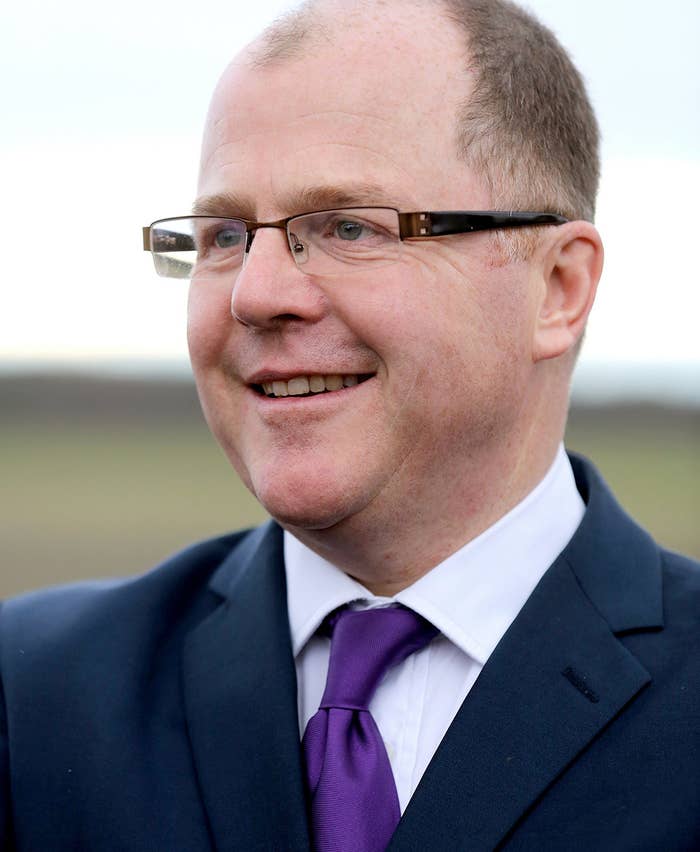
Freeman is not well-known beyond Westminster, but in conversations with senior Conservatives since the general election about the future of the party, his name is cited repeatedly as a key player in shaping what comes next. Over the last month, BuzzFeed News has interviewed Freeman at length, spoke to numerous people connected to the party, and obtained documents relating to Freeman's policy role that have not previously been reported. Together, the material provides a revealing insight into the political manoeuvres and philosophical debates taking place behind the scenes in a ruling party that, having expected to win a landslide victory on 8 June, is now deeply divided, intellectually desolated, lacking talented leaders and desperately searching for a winning strategy.
For a decade, Freeman has been arguing in speeches, opinion articles, and long private memos to 10 Downing Street that the Tories are threatened by a dangerous, volatile shift in politics. In his assessment, a succession of perceived failures by governments to pay attention to the bread-and-butter concerns of ordinary people, from the Iraq war to immigration, gestated a profound sense of resentment at “unaccountable elites”. Brexit was the loudest, most traumatic howl of rage by an electorate fed up with being taken for granted. The Tories are out of tune with the insurgent mood and urgently need to adapt, Freeman argued.
“[We are] an analogue party for a digital age,” Freeman said in one memo to Downing Street seen by BuzzFeed News.
As chair of Downing Street’s policy board, which May set up to provide big-picture advice on domestic policy, Freeman argued that the party needed to reach out to the young, the working class, northerners, public sector workers, and ethnic minorities and explode the damaging perception that the party only cares about big business and the “nostalgic 1950s retiree vote”. As it turned out, like so many in the party, Freeman was left out of the loop by May’s team and sidelined during the election campaign. He didn’t even see the policy manifesto before it was published.
Watching the results come in on election night, three months ago, Freeman thought, This changes everything. The Conservatives ignored the lessons of Brexit. They underestimated the backlash against the political class. They grew complacent about capitalism, failing to make free markets work for everybody. They didn’t make the case for austerity. They acted as if they don’t care about public services. They turned Brexit into a cultural war. They allowed a generation of young people to be priced out of the housing market. And if they don't quickly pivot, Freeman figured, Corbyn will be the next prime minister. So he decided to do something. Bypassing the party’s weakened high command, Freeman began putting into action a blueprint he had presented to May's advisers months earlier, before the election, for a “historic reboot”of the party. The ideas festival would be the first phase.
And so here he is, driving in his Volkswagen after dropping his kids off, still partly in holiday mode but mostly thinking about all the work he's got to do organise the festival before the Tories’ official party conference next month. There's a team of 20 people working on it; WhatsApp messages and Google Docs have been flying around as they scout for venues and arrange speakers. Donors have pledged about £20,000 to pay for the event. He won't identify them specifically, but the money is coming from personal business contacts who are worried about Corbyn.
Freeman – cheerful, earnest, 5 feet 11 inches tall, bald, with rectangular Timberland glasses – doesn’t exactly look like the future face of a modern Conservative party. Nor on paper does he seem an obvious saviour. Educated at an exclusive boarding school and Cambridge University, he worked as a farming lobbyist and then in the venture capital business raising money for biotechnology startups for 15 years before becoming an MP in a safe rural seat. His experience in government is limited to two years as life sciences minister under David Cameron. Other MPs have more inspiring CVs.
And some of Freeman’s views are out of sync with those of the millennials he’s keen to attract: He voted against same-sex marriage, arguing that heterosexual marriages are “the basic building block of family and society”. He vehemently disagrees with the ban on fox hunting. And the low-tax, low-regulation “entrepreneurial” brand of capitalism he champions as the solution to the country’s economic problems would be objectionable to many young voters.
Talk to Freeman’s allies, though, and they say he’s one of the few Tory MPs who really seem to grasp the depths of the party’s predicament. “At the moment, he’s the loudest and clearest rallying point in the Commons for taking on some of these big questions,” says Andrew Cooper, a pollster and former adviser to Cameron. Tom Tugendhat, one of the rising stars in the Tories’ 2015 parliamentary intake, says: “He’s a really imaginative guy, with fantastic ideas. He’s exactly the sort of person you need to be coming up with original ideas about how the party should be answering some of the really difficult questions it’s facing.”
Some Tories are sceptical, rolling their eyes when Freeman’s name is mentioned. For all his talk about the party’s challenges, those people say, they’ve seen little evidence that he has any idea how to entice under-40s from Labour. “He likes to talk,” says one policy expert. Put that to Freeman’s allies, though, and they’ll argue that he’s putting his neck on the line to try to force the party to change. With the Conservatives preparing for their annual conference in Manchester next month, a wrenching debate is coming about the future of the Conservatives and who should lead it. And by quietly building a base of centre-right, pro-free-enterprise, soft Brexit modernisers, supporters say, Freeman is positioning himself to be an influential voice in that argument – and maybe an outside contender for the leadership.

On a Friday in July 2016, Freeman was taking his children to the cinema in London, when in the dark of the movie theatre his phone lit up with a text message.
It was Downing Street, asking him to call.
It was three weeks since the country voted to leave the European Union. Cameron was gone. May had just taken over. A few days earlier, the former home secretary had given a speech outside Downing Street promising to fight injustice and govern for working-class families that were “just about managing” to get by. Freeman, one of Cameron’s junior ministers, had endorsed May for the leadership in an opinion piece in the Daily Telegraph.
When he was finally put through to the new prime minister, May informed Freeman that she was firing him.
A new team in Downing Street, led by May’s powerful new chiefs of staff Nick Timothy and Fiona Hill, was imposing its authority across Whitehall. New departments were being created for Brexit. Ministerial jobs were being reshuffled. Freeman’s life sciences role was being scrapped. But May had something in mind for Freeman that would soften the return to the back benches.
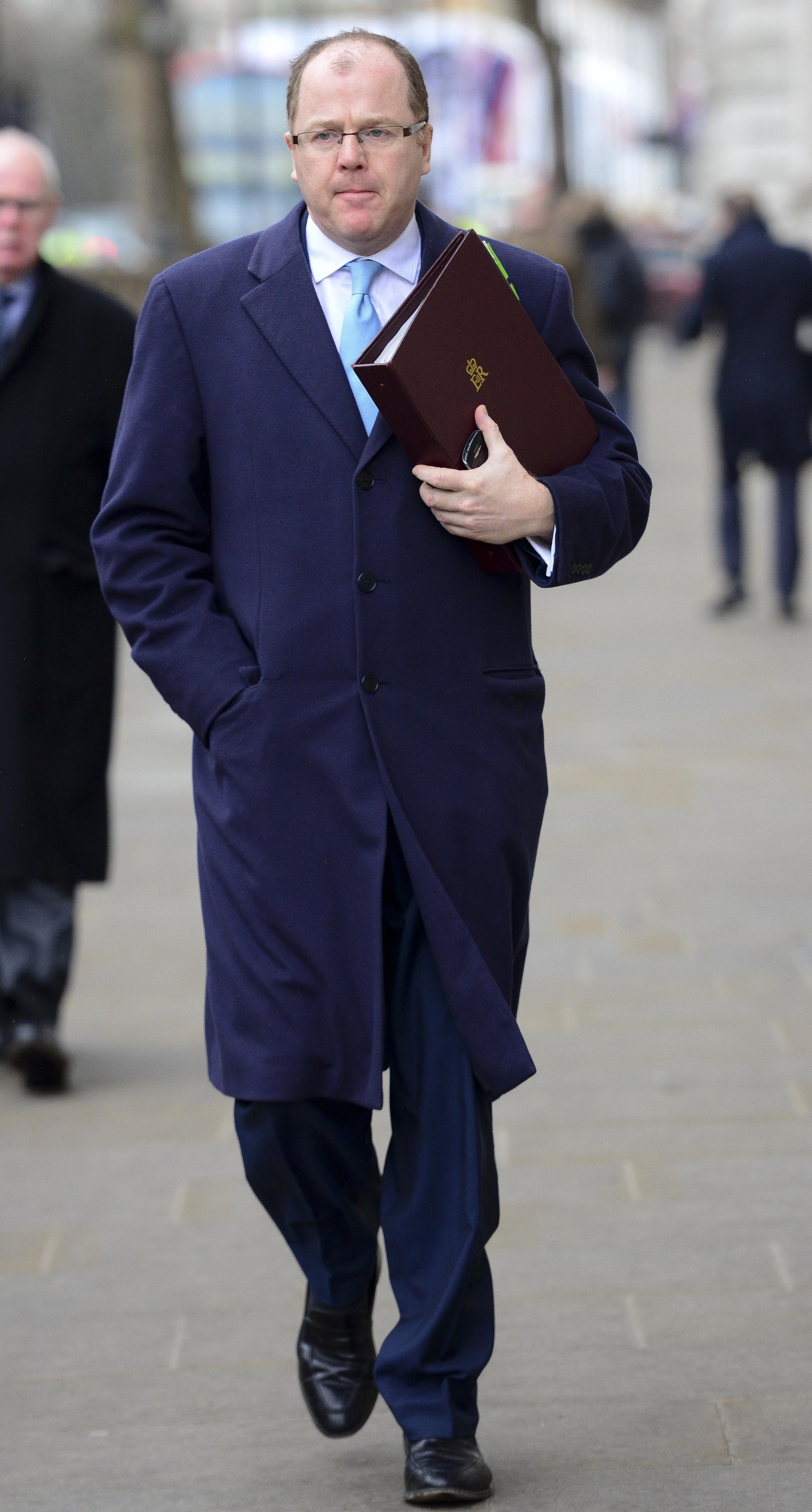
May was setting up a Downing Street policy board to advise on big domestic policy issues that Whitehall departments, consumed by Brexit, wouldn’t be able to deal with. Freeman would act as a link between 10 Downing Street and the parliamentary party, surfacing ideas from the back benches. Also sitting on the board were Timothy, Hill, the cabinet office minister Ben Gummer, and Downing Street’s head of policy John Godfrey. May also asked Freeman to chair the Conservative Policy Forum, a vehicle for party members to contribute to grassroots policy debates.
The new role would, on paper, make Freeman an important voice in the new administration as it sought to reposition the Tories as the party for ordinary workers. And it would allow Freeman to focus on something he’d been fascinated by for years: the growing backlash against mainstream politics.
In the 2000s, Freeman decided to give up his career in biotech to become an MP. He’d made a good living in venture capital, but not a life-changing fortune, and he’d always found politics more exciting than business. After standing unsuccessfully in Stevenage at the 2005 general election, he was chosen by the Conservatives two years later as their candidate for the next election in Mid Norfolk. Knocking on doors to gather support around Norfolk, Freeman was surprised to find just how many people seemed to be angry and resentful. The financial crisis had just brought years of debt-fuelled economic boom to an end, and the voters there wondered why their communities had never seen any of it. The resentment seemed to be just as strong among traditional Tories – the gentlemen farmers and landowners – as it was among the working-class Labour-supporting residents. He sent a memo to David Cameron, then the opposition leader, warning of a “groundswell of resentment” against complacent, detached, unaccountable administrative elites.
In 2012, when the Conservatives were in government, and with Freeman now an MP, he sent another memo to Cameron, now prime minister. The crisis of disconnection was getting worse. There was a “fundamental breakdown of public trust in our political and economic order”, he warned. It would dominate politics for years. The Conservatives needed fresher faces and a radical change of attitude to show people that they understood what life was like “below the line”.
“‘We’re all in this together’ is a constant reminder to people of their suspicion that we’re probably not,” Freeman wrote, referring to Cameron’s campaign slogan. “We increasingly look like the bankers the public loathe.”
Four years later the Brexit vote happened. With May now in Downing Street, Freeman felt the country had a prime minister who really understood the drastic changes that were taking place and was committed to tackling them. On the phone that Friday, he recalls, May told him, “You’ve been as fluent as anyone on the nature of this challenge, this insurgency. I completely agree with you: The causes of this Brexit vote are as much domestic policy grievances [as they are about Europe], and we’ve got to redouble our domestic policy.”

In February, Freeman sat in 10 Downing Street, leafing through a 16-page presentation with Nick Timothy setting out Freeman’s vision for a rebranded, rejuvenated “21st century” Conservative party.
At first, Freeman had been enthusiastic about having May as prime minister. According to one 15-page memo he sent to Downing Street in September, he regarded her as the ideal leader for turbulent times: a “reassuringly unflashy quiet determined steely” former home secretary with a reputation for competence. The post-Brexit turmoil, he argued, was an opportunity for May to establish herself as a new kind of prime minister, “more in tune with the gritty challenges and realities of our times” than Cameron had been. Downing Street could win voters’ trust by portraying a “less compromising, more straightforward political leadership of ‘tough love,’” and by “consciously highlighting hard truths, under-promising and then over-delivering”.
One way May could connect with voters, Freeman proposed, was by leaving the Westminster bubble once a month to go “under cover” to meet charity and social workers around the country.
In Freeman’s view, according to the September memo, May had about 18 months to “lock down the noble defining mission of the May programme” so that when Brexit and the economy turned against the Conservatives in the run-up to the next election — expected then in 2020 — voters would give May the benefit of the doubt, as they had to Margaret Thatcher in the 1980s.
At first, May seemed to follow Freeman’s prescription (although that owed more to May’s own thinking and that of Hill and Timothy than to any external influence). At the Conservatives’ annual conference in Birmingham in October, she promised a new approach addressing the deep resentments Brexit had exposed. She would move the party to the centre ground, reaching out to struggling families that weren’t traditional Tory supporters, tackling injustice and standing up for those who feel the system is rigged in favour of privileged elites. “I’m putting you on warning,” May scolded big businesses that acted irresponsibly. “This can’t go on anymore.”
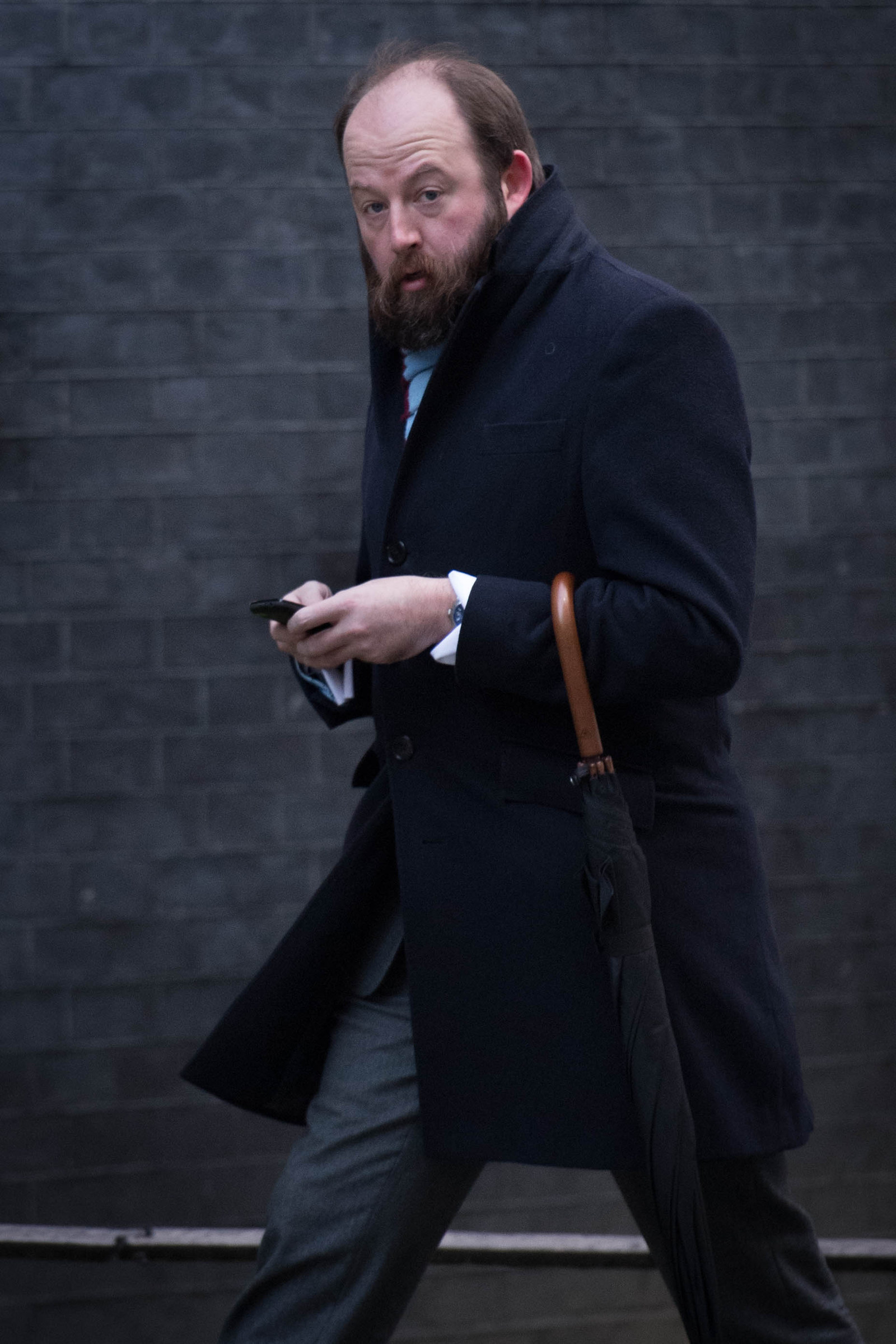
By February, though, there was no sign of the “noble defining mission” Freeman had hoped for. Any ambitions May had for repositioning the party on domestic policy were quickly consumed by Brexit. After half a year in office, the “sea change in British politics” she promised in her conference speech had produced few policies. Downing Street simply didn’t have the bandwidth.
There were frustrations, too, about the way May’s team operated. Hill and Timothy, who had been May’s advisers at the Home Office, ran 10 Downing Street so tightly that senior Whitehall officials and ministers complained that they weren’t given access to the prime minister or consulted on big decisions. The formulation of policy was kept to a tiny circle, overseen by Timothy, and Freeman wasn’t in it, despite chairing the policy board. It’s not clear whether May ever actually read his submissions.
Freeman declines to comment on his private discussions with Downing Street, but an ally of his says of the policy board: “It didn’t really exist. There wasn’t really a board to be a chair of. He would never express that dismay in public.”
Nevertheless, Freeman was bullish in his February presentation.
He started with his usual foreboding themes about the “historic tectonic rupture of the political establishment”. He gave an extremely critical assessment of the state of the Conservatives, warning that the party was seen as “the ultimate political establishment”, out of touch with the zeitgeist, and too reliant on elderly voters, wealthy donors and a “creaking” party machine. To a new generation of millennials, Freeman wrote, the Tories stand for “austerity, homelessness, privilege, wealth and big business”.
But there was a chance for the Tories to unite the country after Brexit and "render 20th century socialism utterly redundant", Freeman wrote. He floated several ideas to start rejuvenating the party.
The first was the ideas festival. An informal 24-hour summer event in the grounds of an old house. Leading Conservative thinkers would debate the future of the party while camping in meadows and enjoying local food, drinks, and music. There would be a philosophy tent and an ideas den. International speakers would be brought in. Families and partners would be welcome. The festival would be “a home for the new generation” of Conservatives and a “crucible of the new zeitgeist”.
And, the presentation added, it would be “FUN!”.
Freeman’s next idea: Relaunch the Conservative Policy Forum, the party’s vehicle for grassroots policy outreach, to attract more young people. It would appoint “champions” to start building new grassroots networks among groups such as entrepreneurs, working women and “NHS Tories”, to counter the large network of left-wing activists supporting Corbyn.
The CPF would get a new slogan, “Shaping Tomorrow”, with rebranded T-shirts and badges.
Finally, Freeman urged May to set up a “21st century Conservatism commission”, to conduct a root-and-branch rethink of the Tories' message and policies before the next election. Taking soundings from Tory MPs, peers, councillors, activists, candidates, think tanks, academics, and analysts, it would investigate themes like the impact of austerity and what millennials want from the government. It would report by Christmas 2019, in time to inform the campaign strategy and manifesto for a 2020 general election.
Strikingly absent from the presentation was any sense of the threat posed by Corbyn.
The Conservatives had a double-digit lead in the opinion polls and assumed the Labour leader had no chance of winning a general election. Nothing in Freeman’s analysis suggested that Corbyn might in a few months trounce the Conservatives among under voters under 40. Nothing in his proposals seems obviously intended to counter Corbyn’s bold promises to end tuition fees, build a million new homes and ramp up spending on public services. Despite his warnings of the volatile political winds swirling beyond Westminster, it seems he, like the rest of his party, failed to grasp that Corbyn was a serious threat.
There was no chance for Freeman’s ideas to be put in action. Within a month, May had triggered Article 50, formally starting the two-year countdown to Brexit. And in April she called an early election after repeatedly saying she wouldn’t, to the astonishment of virtually everyone in Westminster, Freeman included. “I thought this year the bruising from the Brexit referendum was too raw,” he says.

“He lived in here,” Freeman says, pointing to the block of run-down council-owned flats where his father lived at the end of his life, alone, bankrupt, alcoholic.
It’s a Monday afternoon, and Freeman is in Newmarket, the Suffolk market town at the heart of the British horse-racing industry where he was born in 1967. He’s brought BuzzFeed News here because he wants people to understand where he comes from, what happened to him growing up, how it shaped him. It explains the origins of his political views and the intensity of his work as an MP, he says.
The themes that recur in Freeman’s political analysis – grievance, disconnection, turmoil – run prominently through his biography. He was born into a well-off family with roots in racing and hunting, but his childhood was scarred by divorce, alcoholism, and the absence of his father. Arthur Freeman was a jockey who won the Grand National in 1958 and rode for the Queen Mother, but his career was ruined by head injuries. He became a heavy drinker. Freeman’s parents divorced when he was an infant, and Freeman was barred from seeing his father. His mother remarried, divorced again, and had her own battle with alcohol. (She later stopped drinking and remarried again.) As a teenager, Freeman was sent off to Radley College, a conservative all-boys boarding school in Oxfordshire that became his sanctuary. Family friends and relatives helped to raise him. At 18, Freeman reconnected with his father, but Arthur died not long after.
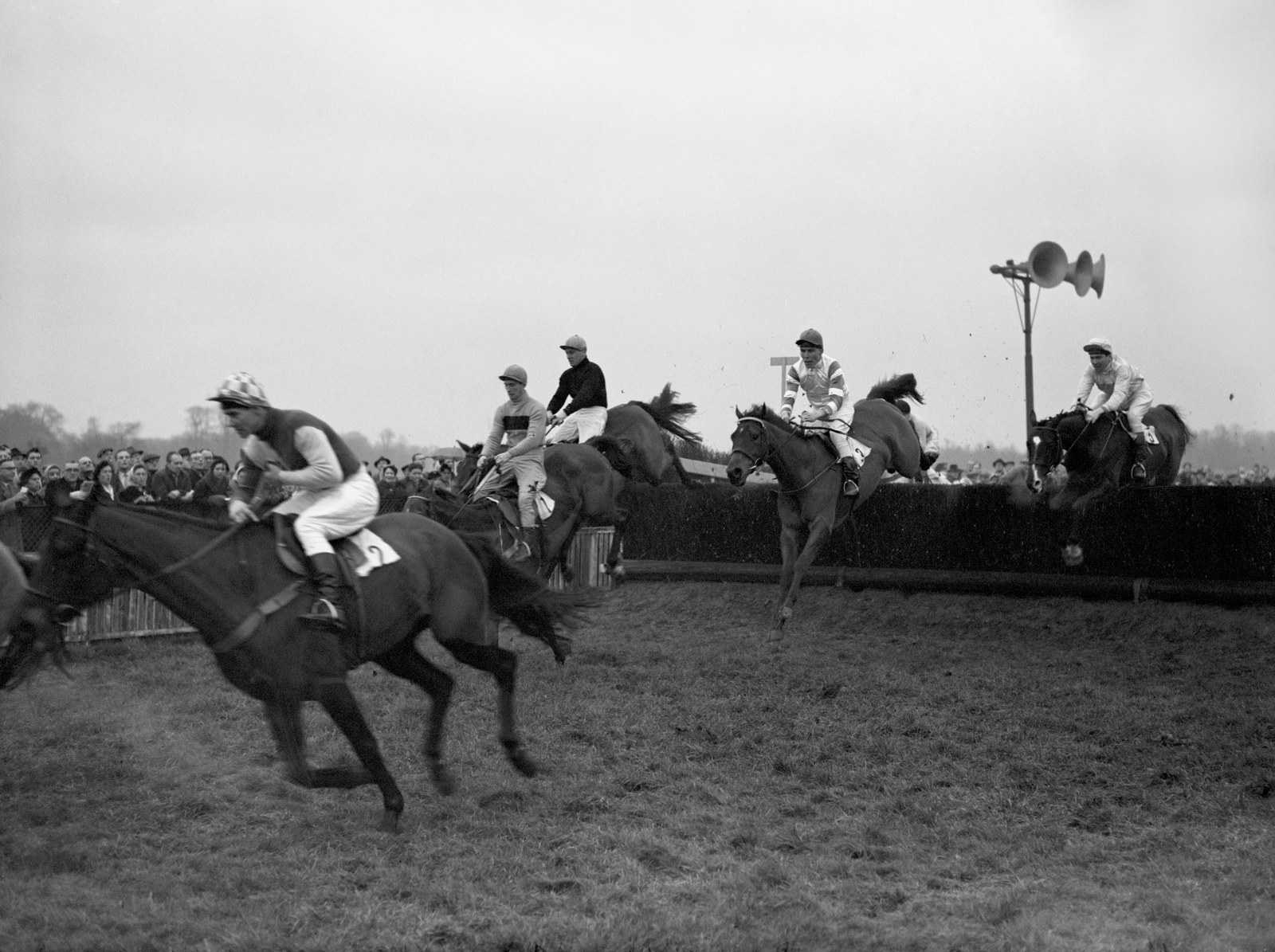
Conversations with Freeman frequently circle back to his childhood. Like many politicians, he's keenly aware of the power of a relatable backstory. It's important for politicians to share their experiences, he believes, because it helps voters to see that they're real people, that their motives aren't cynical. In Freeman's telling, there's a straight line between his unhappy early years and his political work now. The main takeaway, as he sees it, is the importance of people taking responsibility. It's the bedrock of his conservatism. “I developed at a very young age a sense of awareness of the difference between adults who took their responsibility seriously and those who didn’t,” he says.
After several long conversations about his past, though, it's clear Freeman is still trying to make sense of it all. The facts are messy and painful and still raw. For years, Freeman admits, he carried a “silent rage” about his childhood. He was angry that his father hadn’t been around for most of his life, angry that the elites in Newmarket racing didn’t take care of Arthur Freeman when he was down and out. Angry that they patronised him because he was Arthur Freeman's son.
Scratch the surface, and it's still there.
“There's a sort of loyalty of a kid who never knew his father who feels the need to close some gap,” Freeman says now, driving his Volkswagen through his home town, just turned 50, his own marriage having ended.
Freeman is considering writing a memoir based on conversations he had with his father just before he died. It'd be his version of Dreams From My Father, Barack Obama’s account of searching for his lost father. He hopes it would explain to his own kids why their father has been absent for so much of their lives, why he's chasing what might seem “an irrational or even selfish choice”.
Becoming an MP, Freeman adds, is “not good for family life”.

The election campaign was nearly a month old when, in mid-May, Theresa May launched the Conservatives’ policy manifesto in a converted industrial mill in Halifax. Freeman was knocking on doors and handing out leaflets in Norfolk. He hadn’t been invited.
Because Freeman chaired May’s policy board, it was assumed he would be involved in drafting the manifesto. “He will do a lot of the party work,” the website ConservativeHome predicted. But Freeman wasn’t consulted.
Freeman had sent 10 Downing Street a memo setting out his recommendations for the manifesto, urging May to adopt a “messianic” focus on education and skills. The Conservatives, he said, needed to “draw media attention away from the inevitably growing pressures on NHS budgets”, and their record on education was an easier sell. The NHS could be dealt with, he suggested, by setting up a cross-party commission to investigate the crisis in health and social care.
In Halifax, May laid out a policy agenda designed to appeal primarily to struggling working families. Within days, it was in tatters. Whatever interesting ideas the manifesto included were totally overshadowed by the backlash against a controversial proposal for funding social care – the so-called dementia tax – that hadn't been widely discussed with ministers and provoked a sharply negative reaction from the Tories’ elderly supporters. May backtracked but insisted she wasn't backtracking, and a campaign that was already criticised as uninspiring and repetitive began to unravel.
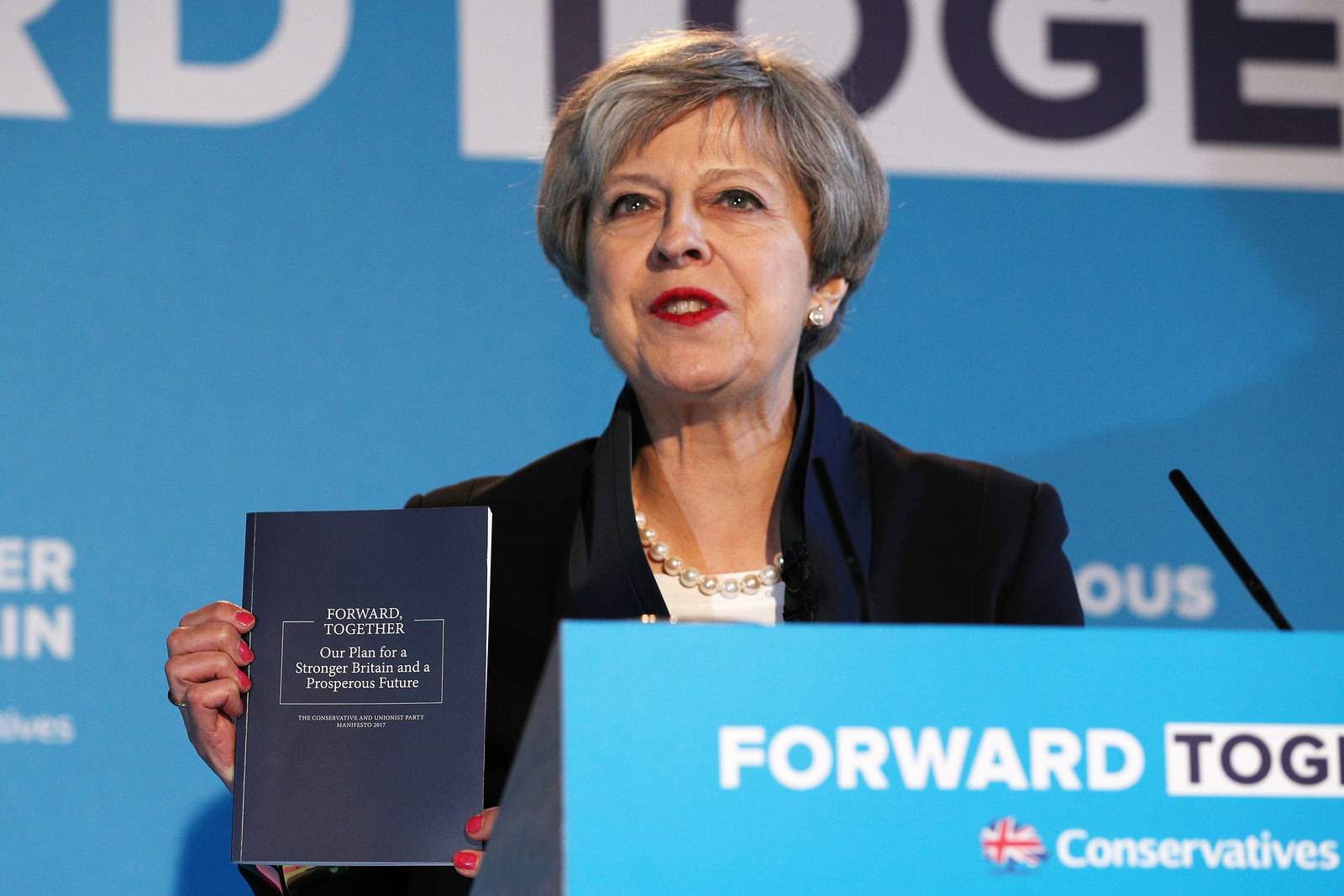
For the chair of May’s policy board to have been excluded from conversations about the manifesto was humiliating. Freeman says he didn't recognise most of the policies it contained. “It backfired because the pitch hadn’t been rolled, the issues hadn’t been explained,” he says. “It was just a rabbit out of a hat. And in my patch it triggered a huge and quite visceral kickback by the retired, the pensioners.”
It wasn't just the manifesto. The campaign overall was terrible. “To lazily assume that just because Labour voters voted Brexit that they’re now gonna switch to Conservative I thought was a mistake,” he says. “And then the decision to basically embrace the sort of robotic mechanisms of machine politics – repeat, repeat, repeat 'strong and stable' – so that the entire Conservative party was invited to sound like Daleks, robotic repetition, just when politics is trying to embrace, and the people are demanding, more authentic conversations was hugely, just tactically, a big mistake.”
He continues: “And then a whole catalogue of just basic operational failures. MPs sent to campaign in [target] seats when they were worried about their own majorities, and signalling that concern, they were told by HQ to relax, ‘It’s all fine,’ and to go off to other seats, and then they’ve lost their own seats.”
Corbyn was a more authentic candidate, at a time when voters want politicians with authenticity. After 40 years of “having the wrong ideas and being rejected by just about everybody in politics, including in his own party”, Corbyn came across as a noble underdog, Freeman says. Momentum, the left-wing activist group, “clearly played a big part in massively rejuvenating the Labour party’s grassroots”. They were “smarter than us at knowing where to go and identifying swing voters”.
He refuses to blame May personally, and instead holds the people around her responsible. “I really think the campaign let her down terribly badly.”

At just after 10pm on election night, one of Freeman’s aides checked his phone and turned pale.
Voting had just finished. Tired after an eight-week campaign, Freeman was having dinner with some of his team at Spice Fusion, an Indian restaurant in Dereham, in the heart of his mostly rural constituency. Soon Freeman’s aides would leave for the local sports centre to count votes, while Freeman and his girlfriend would go back to his flat for a few hours’ rest, a change of clothes, and to work on his victory speech. First, they ate curry and poppadoms and waited for the official exit poll to be published.
“Oh my god, look at this,” the researcher said, and handed his phone over the table to his boss. Freeman just stared at it. A hung parliament.
The Conservatives were projected to win only 314 seats – 12 short of the number needed to govern. If the poll was accurate, May had thrown away Cameron’s majority in a miscalculation of historic proportions. Dozens of Freeman’s colleagues could lose their seats, and their leader could be gone by morning. The thought of Corbyn becoming prime minister was no longer a joke.
“I was immediately struck that this was going to change the landscape very profoundly,” Freeman says, recalling the night three months later.
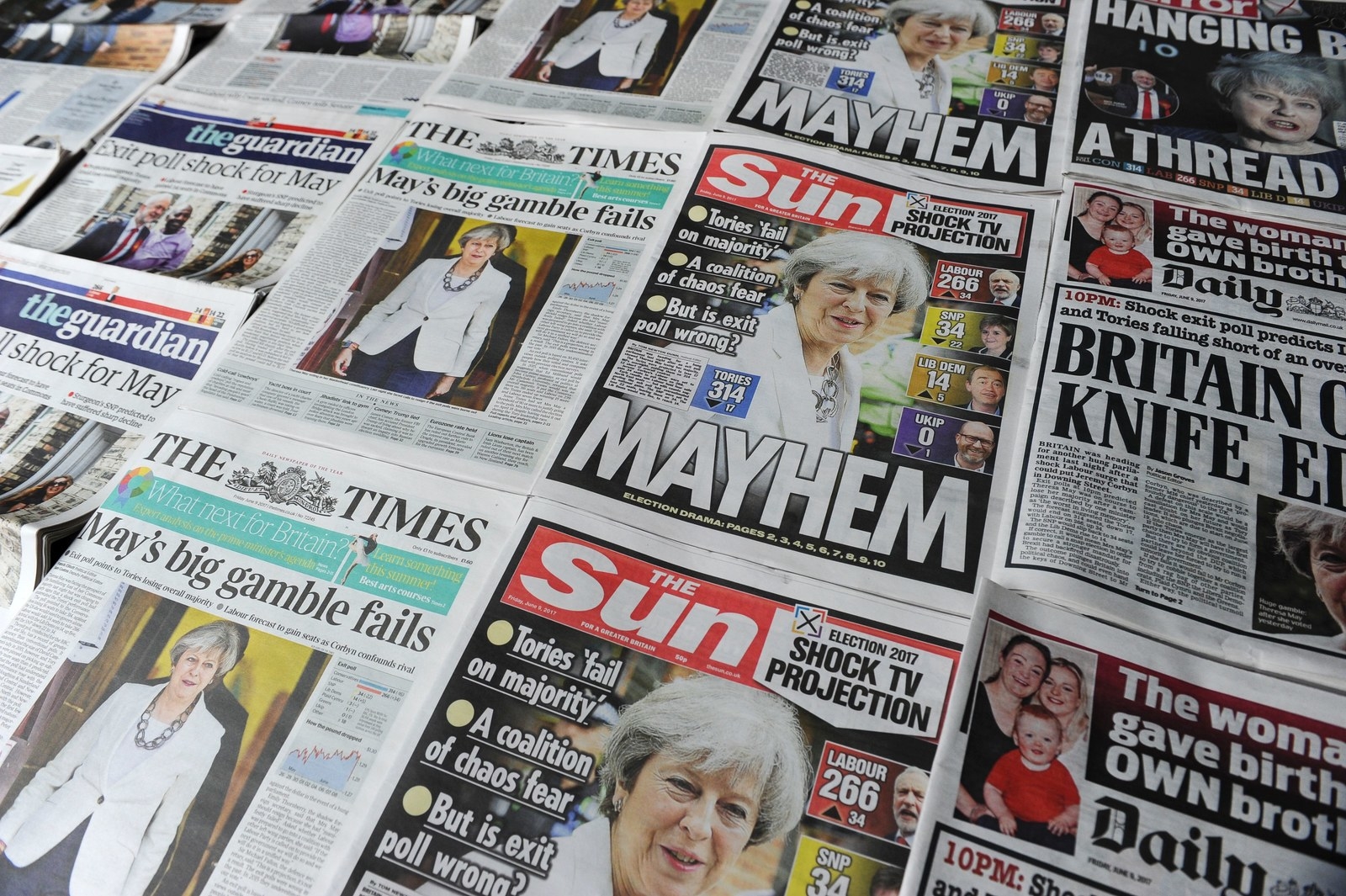
Freeman left the curry house and went back to his Norfolk flat, turned on the TV, and watched the results come in from around the country. It was too tense to sleep. Just before 3am, he went to Dereham leisure centre for his constituency result. He held on to the Mid Norfolk seat with a majority of 16,086, winning nearly 60% of the vote, but gave a circumspect victory speech acknowledging the “huge challenges” the Conservatives faced nationally. When the final results were in, the Conservatives had 318 seats, down 13. Labour won 262 seats, up by 30. It wasn't a loss, exactly, but it felt like one.
That weekend, Freeman wrote an article for The Telegraph giving a scathing assessment of the party’s performance. He attacked the “woeful campaign, a shambolic manifesto process and the undemocratic concentration of power in the hands of a narrow inner circle”. The Tories would have to soften their tone on Brexit and come up with a positive offer for the under-30s and public sector workers.
The piece ran on the first Monday morning after the election, as MPs returned to Westminster for the first time in weeks. Most were shell-shocked. Some of the 33 Tories who had just lost their seats were clearing out their offices. In the following days, people across the Conservative flock wrestled with the result, trying to figure out what had gone wrong. Soon the conversations turned to what to do about it.

It’s now a Thursday morning in early September. Parliament is back after the summer break, and Freeman is drinking coffee on the river terrace of the House of Commons. The terrace is mostly empty, with just a couple of attendants taking a smoking break and a few MPs having meetings in the sun. Freeman is wearing a navy suit with a white shirt and no tie. He’s still got the beard he grew over the summer, and the Latitude festival wristband.
Freeman is chipper. The response to the Big Tent festival has been “phenomenally exciting”, he says. It’s been a rush to get it all organised in so little time, but he’s nailed down the venue in Berkshire and invites have gone out. He’s expecting about 250 people, including around 25 Tory MPs, including rising stars of the new generation like James Cleverly and Tom Tugendhat. Among the speakers lined up are Roger Scruton, the Conservative philosopher; the head of Unicef UK; and the Big Issue founder John Bird. Freeman has deliberately not invited anyone from the cabinet.
He is animated as he describes the scene. There’ll be three tents, dedicated to the economy, society, and politics. Sessions will be “pacy”, with keynote speakers limited to 15 minutes. Each tent will have a soapbox so members of the audience can get up and make rapid-fire policy pitches. Everyone will be expected to take part in discussions.
“It won’t be perfect,” Freeman says. “This is a seedcorn event.”
Implicit in Freeman’s rush to find ideas to rejuvenate the party, of course, is the thought that he and his colleagues really have no idea how to respond to the general election and are panicking. "Is it just going to be old people sitting on hay bales talking about young people?" Freeman was asked on the BBC's Westminster Hour on Sunday. Freeman concedes that some people will find the festival ridiculous, but at least he’s trying to address the problem. “Of course it would be easier to sit in my office and read the papers and wait to be asked by someone else to do a job for them,” he says. “In this game, if one isn’t attracting some flak then you’re probably not saying anything.”
He’s playing a longer game than critics realise.
According to numerous conversations with Freeman’s allies, the thinking behind the event goes something like this: Next month’s official party conference in Manchester will be partly an inquest into what went wrong at the election, but also a debate about where the party goes next. And, of course, a beauty parade for potential future leaders. By rushing to hold the ideas festival now, Freeman is trying to secure a seat at the table. If all goes to plan, the ideas festival will generate excitement and goodwill among MPs and donors and produce a handful of clear, credible policies that could underpin a Conservative revival, giving Freeman momentum going into the main conference. That could provide a springboard to rally others behind him. In the next few months, Freeman wants to attract about 40 or 50 Tory MPs to a centrist “renewal ticket”, according to two people familiar with this thinking. That would give him leverage in debates about the direction of the party's strategic direction in the next few years.
And, of course, a say in its leadership. One reason for the rush to get the festival arranged now is that MPs, earlier in the summer, were anticipating that there might be a leadership challenge in Manchester or soon after. “Part of our thinking was that at least we’re half ready to either run a candidate or be active in somebody else’s [bid],” says a well-placed source. If the renewal camp couldn't get their own candidate into 10 Downing Street, they could at least make it harder for an unprogressive candidate on the party's right to take over – an Andrea Leadsom or a Jacob Rees-Mogg.
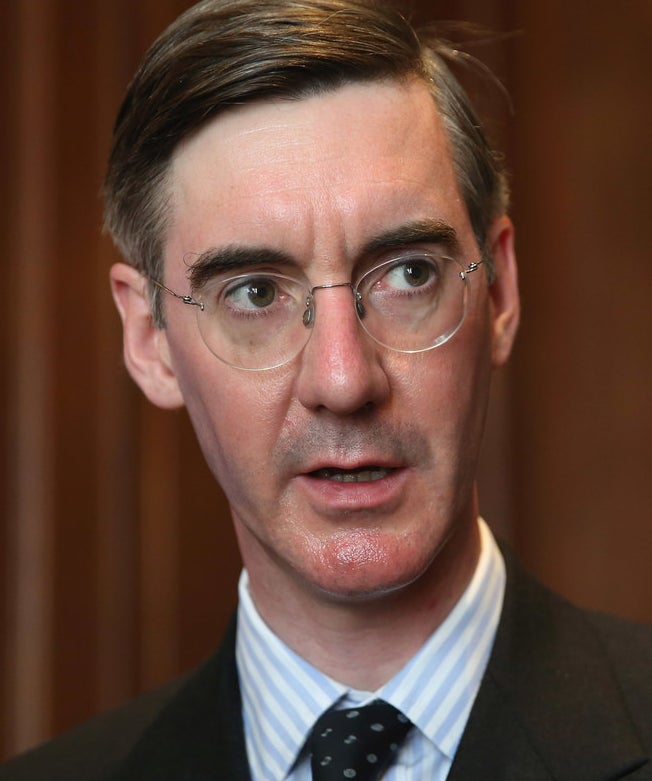
Freeman has set up a corporate body to support his nascent renewal movement, the Capital Ideas Foundation, with the businessman Mark Davies, son of the BBC sports commentator Barry Davies. It will act as a fundraising vehicle, operate the ideas festival – next year Freeman wants to expand the event and sell tickets to the public – and distribute funding to think tanks to pay for research projects that support Freeman's policy aims. At the Conservative conference in Manchester, Freeman will relaunch the Conservative Policy Forum to attract more young activists, giving him another avenue for his renewal plans.
The question arises: Is Freeman laying the ground for a leadership bid himself?
When Theresa May inevitably goes – most party sources believe it will be after Brexit in 2019, but her authority is so fragile it could happen sooner – the field is expected to be wide open. Conversations with numerous people connected to the party in recent weeks revealed a striking lack of enthusiasm for anyone in May's cabinet. Amber Rudd? Would be the frontrunner but won’t even win her own seat. Boris Johnson? Too divisive. David Davis? The past, not the future. Philip Hammond? Steady but dull. Michael Gove? Still bruised by the previous leadership contest. Priti Patel? Too Brexit-y. Sajid Javid? Too wooden.
With no obvious replacement on the front bench, party reformers are looking to a new generation for the face of the future. They're looking for someone untainted by Brexit, modern, hopeful, and capable of beating Corbyn in a test of character. Ruth Davidson is the dream candidate, virtually certain to win the leadership if she had a seat in the Commons, in the view of some on the centre-right. But her electoral route from Holyrood to Westminster by the next election is seen as too risky and difficult. So that leaves party insiders searching among the newer crop of MPs in the Commons. Various names have been floated: Cleverly. Tugendhat. Johnny Mercer. Kwasi Kwarteng. Rory Stewart. Dominic Raab. Rishi Sunak. Nigel Huddleston. All have flaws. All lack experience. All need time to build support and raise their profiles.
The race is anyone's to win.
Does Freeman want it? He dismisses the question. It’s the last thing the Conservatives need now, he says, and it’s not why he’s doing this. “As I’ve gone out of my way to highlight, this initiative isn’t about any one person at all,” he says. “The only leadership it’s concerned with is the Conservative leadership in the battle of ideas shaping the 21st century.”
Philip Lee, a justice minister and a friend of Freeman's, says: “It’s nothing to do with anyone’s leadership bid, I can assure you. This is not George’s leadership bid. This is about George doing what he does best, which is thinking about the issues that matter.”
Speaking to Freeman’s allies, there are various theories about his endgame. Some say he’s doing right now what he’s best-equipped to do: networking, generating ideas. They see him as building a movement to then hand over to a younger, more charismatic MP who would be the flag-carrier for modernisation while Freeman takes a strategic role behind the scenes. “I don’t think George has the X factor of leadership,” the pollster Andrew Cooper says. A Tory MP who is sympathetic to Freeman adds, “I can't see George being party leader.”
A childhood friend says: “He’s sticking his head out above the parapet at the moment and it’s not because he wants one job. I don’t think it’s important to him [to be party leader]. If it happens, it happens, but I don’t think that’s what’s driving him.”
One source close to Freeman says the job he really covets is that of party chairman. Patrick McLoughlin, the current chairman, has been partly blamed for the election calamity and is expected to be replaced. In one of his memos to Theresa May in 2016, Freeman argued that too many of the party's grassroots associations look like “retirement luncheon clubs”, and that the party structures need to be totally rebuilt. Freeman, his supporters say, would have the vision, drive and credibility with big-ticket donors to do that.
“He’d be a good party chairman,” says one Tory MP, who argued that Freeman could be the Tories' equivalent of Jon Lansman, the founder of the influential Corbynite activist group Momentum.
Another Freeman ally thinks he will run for the leadership if the opportunity arises. The party's future right now is so uncertain that all bets are on. Freeman could be a serious contender if the ideas festival succeeds. Already, Freeman is doing the spadework required for a future leadership bid: cultivating donors, raising his profile in the media, building support among MPs, setting up a foundation, developing a policy platform.
“Don’t underestimate his ambition,” the ally says.

In Newmarket, Freeman drives past the famous racecourse where his father once rode. Arthur Freeman is buried in the cemetery next to the course, his gravesite looking out over the spot where he used to train horses.
Thinking about his father, Freeman recalls a meeting at Downing Street a few years ago, where a young adviser to David Cameron accused him of being too impatient. The comment got under Freeman’s skin. I’ve got two children who cry every Monday when I leave home to go to London, wondering what could be more important than being with them. I’ve given up a business career before I’ve even made any real money. We’re two years from an election that it looks like we’re going to lose, and we’re still burning more money as a country than we earn. What’s not to be impatient about?
“My father died young,” Freeman says. “I carry a very strong sense of running out of time.”
